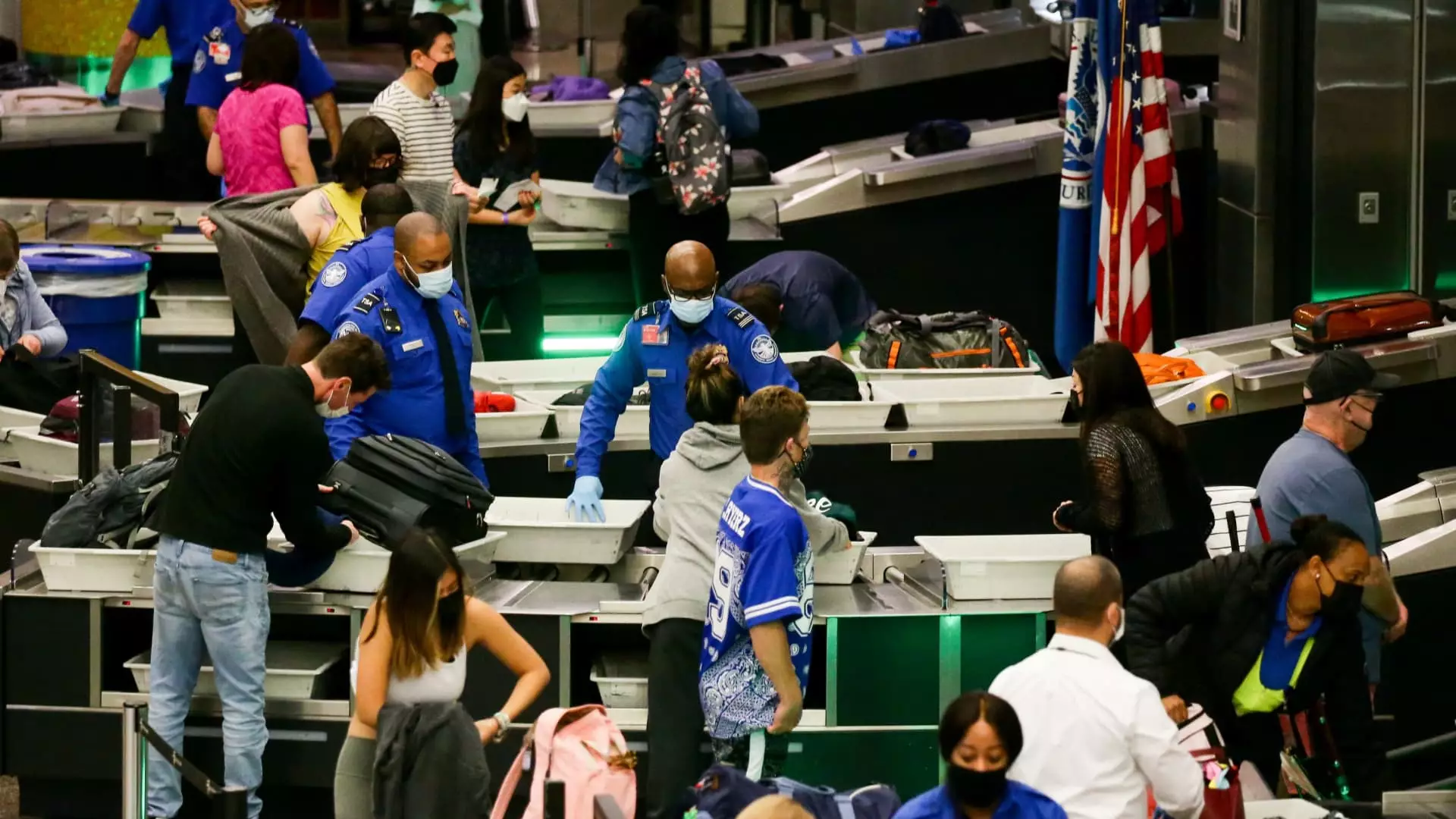In an era where the dignity of labor and the rights of workers are continually tested by the machinations of political power, the recent lawsuit initiated by the American Federation of Government Employees (AFGE) represents a crucial stand against tyranny in the workplace. The AFGE has stepped forward with a lawsuit seeking to protect nearly 50,000 Transportation Security Administration (TSA) officers, aiming to prevent the Trump administration’s chilling decision to revoke collective bargaining rights. This moment is not just another legal battle; it’s a pivotal instance of workers refusing to be silenced by government retaliation.
The Retaliation Narrative
The assertion that the Trump administration’s efforts to dismantle the bargaining agreement is retaliatory is not a mere soundbite; it reflects a systemic approach to quelling dissent within federal ranks. The lawsuit outlines that the reneging on the collective bargaining agreement was predicated on the union’s challenge to other Trump policies. Such tactics are consistent with a broader narrative of silencing opposition—an insidious strategy that erodes the foundational principles of democracy and worker representation. The notion that officers are being punished for exercising their rights to voice grievances illustrates the dangerous precedent being set.
Moreover, the urgency of this lawsuit is underscored by the fact that TSA officers, due to their unique employment structure, are stripped of the standard civil service protections that many federal employees enjoy. This precarious position makes their fight for rights even more critical. The collective action of these workers is not only essential for fair treatment; it embodies a larger struggle against a political atmosphere that prioritizes power over people.
Historical Context of Collective Bargaining Rights
Historically, the campaign for collective bargaining among TSA officers gained momentum during Barack Obama’s presidency, establishing a precedent for enhanced worker rights. With the advent of the Biden administration, the scope was further expanded, only to face immediate threat under Secretary Kristi Noem’s directives to cancel existing agreements. This reversal does not just threaten the potential for collective bargaining; it seeks to refresh a narrative of austerity and distrust towards the very employees charged with maintaining our nation’s transportation security.
The recent judgment blocking Trump’s administration from firing thousands of workers merely highlights the instability and insensitivity of recent policies. Workers are not just numbers on a balance sheet; they are individuals with families, aspirations, and the right to fair treatment in their work environment. It is disheartening that such basic rights require legal battles and federal court interventions, illustrating a systemic failure to value and listen to the voices of those who serve daily in high-stakes environments.
The Broader Implications
This ongoing conflict has broader implications for labor rights across the nation. The AFGE’s lawsuit is not solely about TSA officers—it’s about establishing a legal and moral precedent that protects the rights of all workers who may soon find themselves vulnerable to similar retaliatory actions. It is a rallying cry for collective resistance against an administration that has shown its willingness to intimidate and undermine worker protections as mere collateral damage in its political quest.
As more unions align with the AFGE in this fight, there lies an opportunity for a renaissance of solidarity among workers across sectors. The alignment of various unions, including those representing flight attendants, further signals a growing coalition aimed at safeguarding labor rights. This solidarity can enhance leverage against policies that threaten to strip away the rights painstakingly won over decades of struggle.
In this context, the fight is no longer just about TSA officers. It is about upholding democratic principles, supporting the voice of the worker, and recognizing that hefty-handed political maneuvers should not dictate who gets a voice in the workplace. While the road ahead may be fraught with challenges, the AFGE’s tenacity and determination represent a glimmer of hope in an increasingly polarized environment. The actions taken now will inevitably shape the landscape of labor rights and collective bargaining for years to come.



Leave a Reply